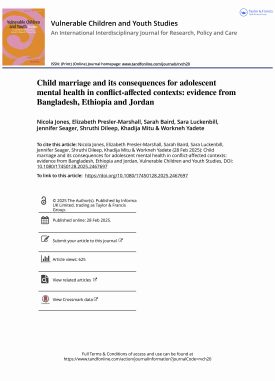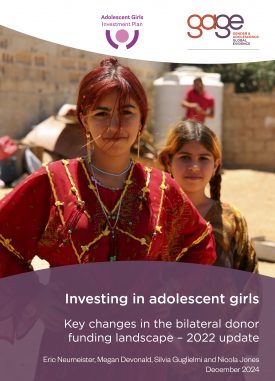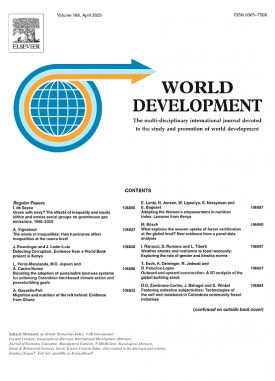Empowering girls is an important goal in development but remains difficult to measure. This project develops survey-based empowerment measures that can be attributed to skill-building programs. The data come from the BALIKA project, a randomized controlled study designed to evaluate three skills programs among early adolescent girls in Bangladesh. We classified respondents at baseline and endline using latent class analysis according to empowerment constructs. Girls’ wealth, marital status, religion, and parents’ level of education predicted empowered responses but changed due to the program. Before the program wealthy girls gave more empowered answers but there were no wealth differences in empowerment after the program. Girls who received gender awareness training and tutoring support were significantly more likely to be empowered but not if they got livelihoods training. We conclude the program empowered girls in general and more if disadvantaged thus reducing class differences.
Suggested citation
Amin, S. and Misunas, Ch. (2020) ‘Measuring empowerment among adolescent girls in the context of intervention.’ Policy brief. New York: Population Council (https://knowledgecommons.popcouncil.org/departments_sbsr-pgy/1203/)


